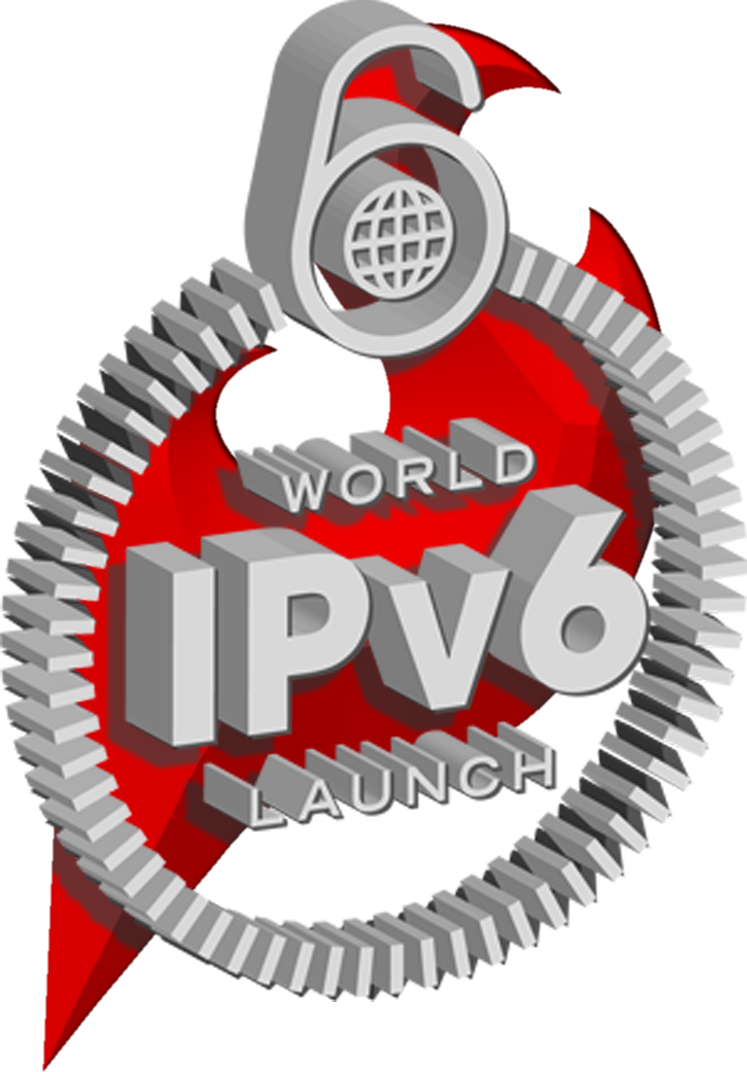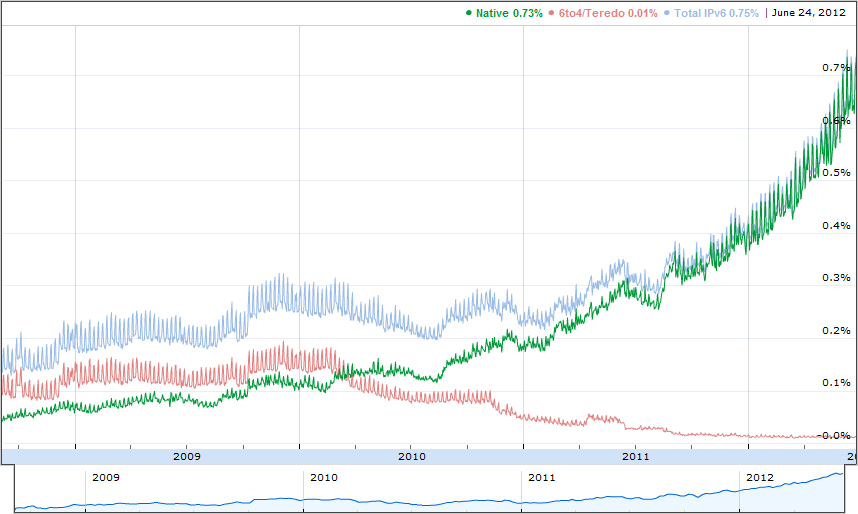
If you're wondering what IPv6 or an AAAA record is, let me begin by stressing how important IPv6 is, and more so, how critical it is that the entire world transitions to it quickly. IPv6 is the replacement of the addressing system of the internet. Our current version of the internet's addressing system allots approximately 4.29 billion addresses. This is quite a bit fewer than the number of people in the world, and substantially fewer than the rapidly-growing number of internet-connected devices out there. There were over 300 million new Android phones activated in the last year alone, and that's not even scratching the surface (RFC2324 compliant coffee pots are going to push us over the edge).
During the inception of the internet, the initial address space was thought to be more than adequate, as the founders of IPv4 didn't expect the internet to ever expand outside a few university and military labs back in 1981. Even so, the old addressing system was well thought out for just being an experiment that never ended. 4.29 billion addresses is nothing to sneeze at, but the new address space of IPv6 is beyond gargantuan proportions. IPv6 ensures that this time around, we really won't run out by using a 128-bit address space. How many exactly? 340,282,366,920,938,000,000,000,000,000,000,000,000 - That's enough to assign an address to every eukaryotic cell in our galaxy, assuming that there are at least 10 billion other planets out there in the Milky Way just as alive as earth is. With numbers this large, the decision was made that standardizing allocations of address blocks trumps the immense amount of wasted space. Our /48 subnet allocation alone grants SparkFun an address space of 18,446,744,073,709,552,000 IPs. Unfortunately, this makes for some complex addresses, like: 2001:1926:3df:5:5054:ff:fe05:a221/64. Just a bit more difficult to remember than 192.168.5.61/24. On the other hand, IPv6 brings many new features, and negates the need for services such as DHCP, which is primarily used to allocate addresses from a pool to connected devices. This is because everything can be guaranteed a unique address by performing a stateless autoconfiguration, based on a broadcasted prefix to itself using Modified EUI-64, where the MAC address of the device is slightly modified and appended to the prefix. IPv6 is much, much more than just a larger addressing pool, it redefines traffic at one of the lowest layers in networking.

IPv6 also augments mesh networking and the interoperability of personal area networks with existing networks, and specifications such as 6LoWPAN from the IETF have arisen to compete with ZigBee, currently found on most of our 802.15.4 modules (although ZigBee has announced that they are investigating the possibility of adding IPv6 support). Additionally, traffic can be encrypted using a standard known as IPsec, which was developed in conjunction with IPv6. All standards-compliant IPv6 devices are required to support IPsec, which should help to keep eavesdroppers from snooping in on traffic from your Tricorder -- at least until us mere mortals get our hands on quantum computers capable of using Shor’s algorithm.



No comments:
Post a Comment